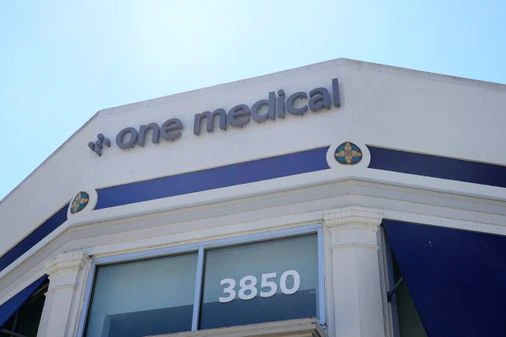The health care system has been buffeted by waves of COVID infections during the pandemic, which has forced a host of rapid changes. Insurers and government health providers now routinely pay for telehealth sessions, people have grown comfortable with conducting home medical tests, and vaccines have been developed more quickly than ever before.
Chris Bischoff, who helps lead health care investing at Cambridge–based venture capital firm General Catalyst, predicts many of the changes will remain long after COVID has been conquered.
“The pandemic exposed deep vulnerabilities in the system,” Bischoff, who joined General Catalyst earlier this year from European investment firm, said in an interview. “But on the other side, it also demonstrated the power of technology and innovation to transform. It proved that the health care sector can accept change — when faced with existential crisis.”
Insurers and providers will continue to reimburse for virtual treatments and consumers may have more choices, he said. Meanwhile, the rate of investment in health startups has slowed along with the rest of the VC market. Globally, health tech companies raised $7.1 billion in the second quarter, down 58 percent from 2021, according to data from CB Insights. Still, General Catalyst just announced several new funds, including a $670 million fund aimed at healthcare startups.
Despite the drop in VC funding, tech giants like Amazon and Oracle have jumped at health care opportunities. Oracle completed its $28 billion purchase of health-data giant Cerner in June, and Amazon announced its $4 billion deal for on-site care provider One Medical last week.
“We’ve clearly seen these big tech companies come in… I’m overall optimistic that it will enable change to happen more quickly,” Bischoff said. Health care needs a broad ecosystem of different companies with different specialties and strengths, so there should still be room for startups to flourish, he said.
Locally, Buoy Health is using AI software to help people check symptoms and get proper care, Akili Interactive is pioneering video game-like treatments for cognitive disorders like ADHD, and Dynamicare has developed an app to help people combat substance abuse. General Catalyst has backed Overjet, an AI dental software startup, and Beacon Biosignals, which is using AI for neurology, psychiatry, and sleep medicine.
Amazon’s purchase, and the down market, may encourage other tech companies to get involved in buying smaller players. Both Google and Apple have already targeted the health care market with their own apps and data services.
“I don’t think Amazon’s move will be unnoticed,” said Bischoff, who is based in London but was in Boston to check out the local health tech scene. “Clearly there will be some further consolidation. There’s going to be some interesting [mergers and acquisitions] coming out of digital health as we go into 2023.″
Several of Bischoff’s themes came together in a deal he led in April to invest $50 million in Waltham startup Eleanor Health, which focuses on mental health care and addiction treatment, in part using online sessions on a phone or computer. The company is using technology to increase efficiency and reach more potential patients. And Eleanor can cover less wealthy parts of the country that are underserved by mental health treatment providers.
“There’s a lot more people suffering from substance abuse disorder today than there should be,” he said. “But finding, engaging with, and delivering care to those populations, given the stigma around it, has been challenging.”
On his visit to Boston, the biggest challenge has been the heatwave. But returning to London won’t bring much relief.
“It’s hot everywhere in the UK,” he said. “And we don’t have any air conditioning. People are truly struggling.”
Aaron Pressman can be reached at aaron.pressman@globe.com. Follow him on Twitter @ampressman.
Credit: Source link


Comments are closed.